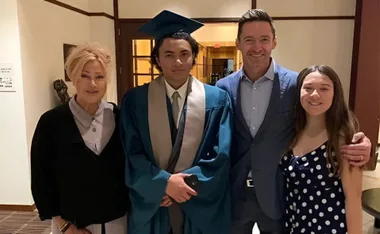Children diagnosed with autism at a young age can “grow out of it”, a new study has found.
The controversial research funded by the US National Institutes of Health challenges the long-held view that the condition is a permanent disorder that cannot be cured.
A team of psychologists identified 34 children and young adults aged eight to 21 who had been diagnosed with an autism spectrum disorder but were now functioning at the same level as their non-autistic peers.
Related: Dancing robots helping kids with autism
Researchers first confirmed the initial diagnosis of each child or young person, then compared them with a group of kids diagnosed with “high functioning” autism, and those with no developmental disorders.
They found that the kids who appeared to have “grown out” of their autism had a mild form of the disorder, and higher IQs than those with high functioning autism.
This led researchers to query whether the kids no longer had autism, or whether their higher IQ had enabled them to better mask their atypical social behaviour.
The kids are now undergoing further tests to see if there brain activity has changed, or whether they have just become better at hiding their disorder.
The treatment or therapy they received is also being studied to assess what affect it might have had in their “recovery”.
“Although the diagnosis of autism is not usually lost over time, the findings suggest that there is a very wide range of possible outcomes,” National Institutes of Health director Thomas Insel said.
“Subsequent reports from this study should tell us more about the nature of autism and the role of therapy and other factors in the long term outcome for these children.”
Despite the potentially ground-breaking findings of this study, autism experts have urged people not to get too excited about a “cure” for the disorder.
Related: The autism generation – why are so many kids born with autism?
“This study is looking at a small sample of high functioning people with autism and we would urge people not to jump to conclusions about the nature and complexity of autism, as well its longevity,” Dr Judith Gould, Director of the National Autistic Society’s Lorna Wing Centre for Autism, said.
“With intensive therapy and support, it’s possible for a small sub group of high functioning individuals with autism to learn coping behaviours and strategies which would ‘mask’ their underlying condition and change their scoring in the diagnostic tests used to determine their condition in this research.
“This research acknowledges that a diagnosis of autism is not usually lost over time and it is important to recognise the support that people with autism need in order to live the lives of their choosing.”






.png?resize=380%2C285)




